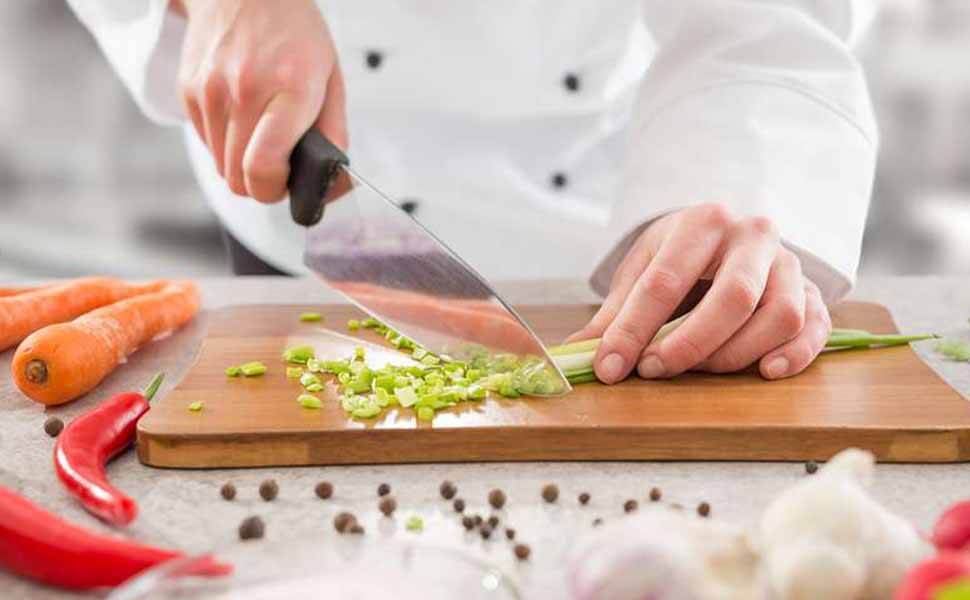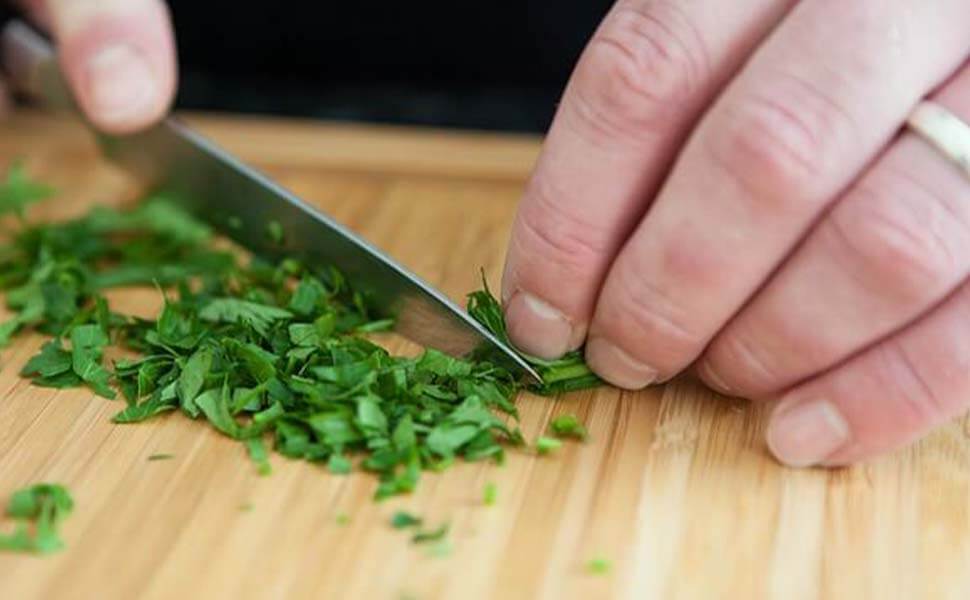In the kitchen, keeping your knife clean and sanitized is crucial for both safety and efficiency. Proper cleaning prevents cross-contamination and ensures that your tools remain in top shape. Without wasting our time, let’s talk about when and how to clean and sanitize your knife for a safer cooking experience.
Contents
When Must a Knife Be Cleaned and Sanitized?
You might wonder, when exactly must a knife be cleaned and sanitized? Well, the answer is simpler than you think. After each use, you should always clean and sanitize your knife. Whether you’re cutting vegetables, meat, or fruits, washing your knife right away helps avoid the spread of bacteria.
But it’s not just after every use. If you’re switching from cutting raw meat to vegetables, for instance, it’s crucial to clean and sanitize your knife in between. This helps prevent harmful bacteria from transferring to other foods. So, when must you clean and sanitize? It’s best to do it whenever you change ingredients, especially if you’re handling raw meat or poultry.
A common question I often get is, how often should I sanitize my kitchen knives? The answer is every time you use them. Yes, even if you’re only chopping fruit after using the knife on raw meat, a quick clean is necessary to keep your kitchen safe and hygienic.
Now, if you’re wondering, what is the correct order of steps for cleaning and sanitizing? First, wash your knife with warm, soapy water. Then, sanitize it with a food-safe cleaner or a vinegar-water solution. Finally, dry it with a clean towel to avoid rust. This simple routine goes a long way in maintaining both safety and knife longevity.
I also get asked, when must a knife be cleaned and sanitized in Quizlet? If you’re ever using Quizlet or similar platforms, remember they emphasize cleaning and sanitizing knives especially when transitioning between different foods to prevent cross-contamination. So, it’s a good habit to clean and sanitize after each step in the food prep process.
Taking a few extra seconds to properly clean and sanitize your knife can make a big difference in preventing foodborne illnesses and maintaining a safe kitchen environment.
Read more: How to Sharpen a Knife with a Rod – An Easy Guide
How to Clean and Sanitize Knives Properly?

Cleaning and sanitizing your knives correctly is essential to maintain hygiene and ensure food safety. Here’s a simple step-by-step guide to help you:
- Wash with Soap and Water
Start by washing your knife with warm, soapy water to remove any food particles or residue. Use a non-abrasive sponge or cloth to avoid damaging the blade. - Sanitize the Knife
After washing, sanitize the knife using a food-safe sanitizer or a vinegar-water solution (1 part vinegar, 3 parts water). You can also use a sanitizing spray designed for kitchen tools. - Dry the Knife
Thoroughly dry your knife with a clean towel to prevent water spots and rust. Make sure the knife is completely dry before storing it. - Store Properly
Store your sanitized knife in a knife block, on a magnetic strip, or with a protective sheath to keep it safe and maintain its sharpness.
By following these simple steps, you’ll ensure that your knife stays clean, safe, and in good condition for every use.
Related: How to Sharpen a Serrated Edge Bread Knife
Some of the Best Knives from Amazon:
- ZWILLING Twin Signature 3-pc German Knife Set
- Brewin CHEFILOSOPHI Japanese Chef Knife Set 5 PCS
- HENCKELS Premium Quality 15-Piece Knife Set with Block
Why Cleaning and Sanitizing Your Knife Is Crucial
When it comes to food safety, knives are one of the most important tools in your kitchen. If you’re not cleaning and sanitizing your knives properly, you risk cross-contamination. A dirty knife can easily transfer bacteria from raw meat to other foods like fruits and vegetables, which you might eat without cooking. This is why it’s so important to adopt the habit of cleaning your knife every time you switch between different ingredients.
In addition to safety, cleaning and sanitizing your knife also help in maintaining its sharpness. Food particles left on the blade can cause buildup, which affects its performance over time. When your knife is clean and well-maintained, it works more efficiently, making your cooking process smoother and safer.
Choosing the Right Sanitizer for Your Knife
Not all cleaning methods are equal. While soap and water are excellent for washing off food residue, a sanitizer is necessary to kill bacteria. You can use a food-safe sanitizer or even a simple vinegar-water solution. The goal is to ensure that your knife is free from any harmful microorganisms that could cause foodborne illnesses.
Also, be mindful of the materials your knife is made from. Some knives, especially high-quality ones, might require gentler cleaning solutions to avoid damaging the blade. Always check the manufacturer’s recommendations to ensure you’re caring for your knife the right way.
Read for best chef knives: 7 Best Japanese Chef Knives under 100
Knife Storage and Maintenance
Once you’ve cleaned and sanitized your knife, the next step is proper storage. Storing knives improperly can lead to dullness, rust, or even injury. Consider using a knife block, magnetic strip, or protective sheaths to keep your knives safe and in good condition. Proper storage not only prevents accidents but also helps maintain the sharpness and longevity of your knife.
Frequently asked Questions:
1. How do I properly clean and sanitize my kitchen knife?
To properly clean and sanitize your knife, first wash it with warm, soapy water to remove food residue. Then, sanitize it with a food-safe sanitizer or a vinegar-water solution. Finally, dry the knife thoroughly to prevent rust. Click here to know more.
2. How often should I sanitize my kitchen knives?
You should sanitize your kitchen knives after each use, especially when switching between raw meat, poultry, or other foods that may carry bacteria.
3. What is the best way to store kitchen knives after cleaning?
Store your knives in a knife block, on a magnetic strip, or in protective sheaths. This prevents damage to the blade and ensures safe, convenient access. Learn more.
4. Can I clean my knife in the dishwasher?
It’s not recommended to clean your knife in the dishwasher. The high heat and harsh detergents can damage the blade and handle. Hand-washing is the best method for preserving your knife’s longevity.
5. Why is sanitizing my knife important?
Sanitizing your knife is crucial to prevent cross-contamination. Raw meat and other foods can harbor harmful bacteria, which can transfer to other ingredients if the knife isn’t properly sanitized.
Final Thoughts on Cleaning and Sanitizing Knives
In conclusion, cleaning and sanitizing your knives isn’t just a chore; it’s an essential part of kitchen safety and hygiene. The more consistent you are with this practice, the safer your kitchen will be. Remember, a clean knife is not only a tool for cooking but also a key factor in keeping your food safe to eat. So, the next time you’re prepping your meal, make sure to give your knife the care it deserves!
Read more articles:

